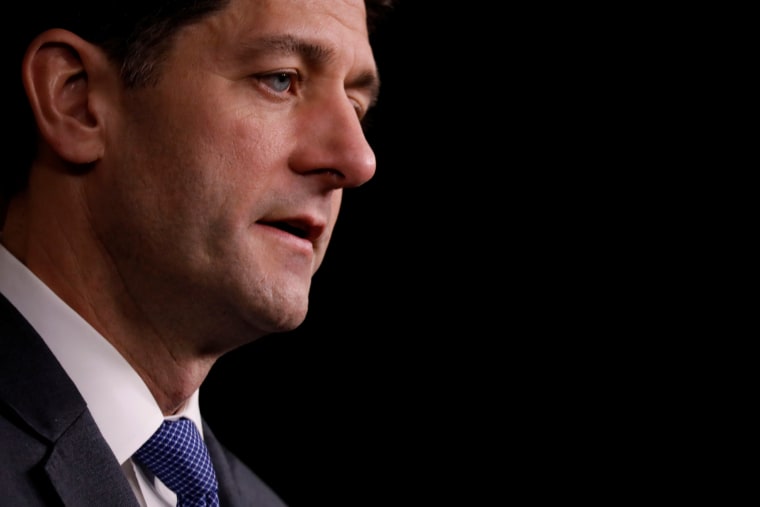House Speaker Paul Ryan (R-Wis.) is generally very careful about publicly disagreeing with Donald Trump, and this morning was no exception. While not specifically condemning the president trade tariffs by name, the outgoing Republican Speaker was willing to say, "New tariffs are not the solution."
So why not pass a bill rejecting the White House's policy? Ryan also said today there's simply no point.
"You would have to pass a law saying 'don't raise those tariffs' and the president would have to sign that law. That's not going to happen."
This comes the day after most Senate Republicans supported a measure expressing vague opposition to Trump's tariffs -- in a non-binding resolution that had no force of law.
Circling back to our coverage from several weeks ago, let's put aside the oddity of hearing Ryan insist Congress should only tackle legislation the White House is inclined to support. He had a very different approach in the Obama era – how many dozens of votes did Ryan's House Republican conference hold on repealing the Affordable Care Act? -- but for now, let's not dwell on recent history.
Instead, let's remind Congress' most powerful Republican that the legislative branch has a remedy for dealing with a president who vetoes popular and worthwhile bills: lawmakers have the constitutional authority to override a veto.
Specifically on the issue of Congress, presidents, and tariffs, there's some precedent to keep in mind: in his final year as president, Jimmy Carter imposed oil tariffs, which Congress -- led by a Democratic majority -- quickly overturned.
There's no reason this couldn't happen again. It's a matter of political will, not institutional constraints. Ours is not a parliamentary system; Congress is its own branch of government.
Indeed, in this case, the political will is pretty one-sided: Trump's tariffs have very few proponents on Capitol Hill. Lawmakers could take up a bill to undo what the president has done, and to prevent him from going further. It would likely garner considerable bipartisan support -- perhaps even enough to override a presidential veto.
Ryan thinks Trump's policy is a bad idea. Ryan has the means at his disposal to undo that bad idea. But the Speaker chooses to do nothing, not because the president has all the power, but the Wisconsin congressman prefers passivity and partisan loyalty to action.
